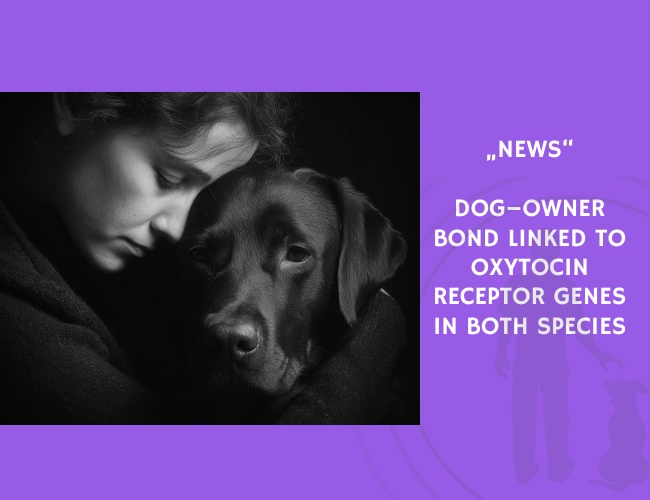In a cross-national genetic study published in Frontiers in Psychology, Kovács et al. (2018) have shown for the first time that variations in the oxytocin receptor (OXTR) gene in both dogs and their owners are associated with attachment behaviors in the dog–owner relationship. This discovery provides insight into the biological and environmental foundations of interspecies emotional bonding.
The researchers studied 135 Border Collies and their human caregivers in Austria and Hungary. Dogs and owners were genotyped for specific OXTR single nucleotide polymorphisms (SNPs), and their attachment patterns were evaluated using a modified Ainsworth Strange Situation Test (SST), a tool commonly used to assess child–parent attachment. Additional information about the owners’ personalities and attachment styles was collected via questionnaires.
Dogs’ attachment behaviors were classified into three main components: attachment to owner, anxiety in unfamiliar environments, and acceptance of strangers. The results revealed that:
- Dog behavior was significantly associated with OXTR SNPs in both the dog and the owner.
- Interactive genetic effects between the two species influenced how dogs formed attachments.
- Country of origin and environmental background played a role in behavioral variation.
- Owners’ attachment styles and personality traits were also influential in shaping dog attachment behavior.
These findings highlight that dog–owner attachment is not a one-sided emotional phenomenon. Instead, it emerges from a complex interaction of biological predispositions and environmental influences from both participants in the relationship. The study also demonstrates how dog–human bonds provide a unique model for investigating attachment processes, distinct from parent–child relationships where shared genetics can confound results.
By revealing the joint influence of oxytocin biology in humans and dogs, this research deepens our understanding of how emotional connectedness can evolve across species boundaries and emphasizes the importance of recognizing individual differences in both human and canine emotional landscapes.
Source: Krisztina Kovács, Zsófia Virányi, Anna Kis, Borbála Turcsán, Ágnes Hudecz, Mária T. Marmota, Dorottya Koller, Zsófia Rónai, Márta Gácsi, József Topál. “Dog–Owner Attachment Is Associated With Oxytocin Receptor Gene Polymorphisms in Both Parties: A Comparative Study on Austrian and Hungarian Border Collies.” Frontiers in Psychology, 2018-04-05, Volume 9. https://doi.org/10.3389/fpsyg.2018.00549










